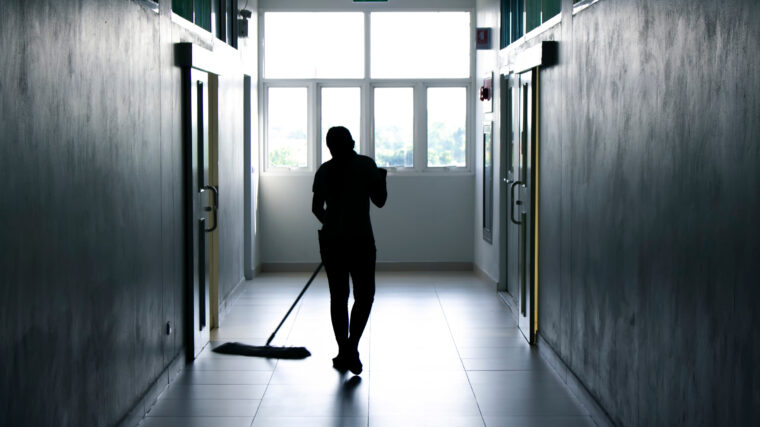We are beginning to see the results of some of the research conducted on the emergency remote teaching (ERT) widely experienced during the pandemic.
Common themes include students reporting that online learning affected their academic performance, and that they were less motivated to study online compared with face to face. Many students felt lonely and depressed. Academic staff were struggling with rapid technology adoption and increased workload.
With Covid-19 related restrictions being rolled back, educational practitioners and researchers are now shifting their attention to the future of online higher education in the post pandemic era. A recent special issue of the British Journal of Educational Technology is just one of many examples.
As researchers in this field ourselves, we believe that ERT has provided benefits to staff and students. For example ERT offered a platform from which students have developed their online learning abilities, and it gave academic staff across all disciplines valuable experience in using different technologies.
A bright future, or a regretted past?
Many consider that a hybrid model of learning and teaching, blending aspects of both face-to-face and online learning, is the future for higher education institutions. This academic year many universities in the UK have offered a form of blended learning.
But it has not been clear how providers have ensured the quality of teaching and learning in blended learning. There are signs of another change in attitudes, and more universities are deciding to go back to the old normal – teaching entirely face to face from autumn 2022. We are interested in finding out the reasoning behind these decisions.
Universities, of course, are under a lot of pressure from the government and from students to “return to normal”. The Secretary of State for Education Nadhim Zahawi has told universities that they have no excuse for providing online learning in future because there are to be no further lockdowns in the UK.
The decision to return to on campus teaching has also been influenced by the ongoing debate regarding university tuition fees. Many students (and many parents) are unhappy with online and blended learning, seeing it as a cost-saving exercise that should make for lower tuition fees.
From the perspective of the UK government and students, the feeling is that online learning does not provide the same learning experiences as face-to-face learning, and does not add value. Echoing these thoughts and concerns, the Office for Students has recently launched a review of blended learning, to be led by Susan Orr. But is this view correct?
What does the literature say?
Examining the published studies relating to ERT, we notice that staff and students did not face any significantly new difficulties and challenges compared with the pre-pandemic era, and also there were no major changes seen in the way academic staff taught and engaged students online, regardless of the cultural and educational contexts.
In addition, it seems universities were unaware of the need to look after students in terms of their social networking and community development in online environments. Studies have shown that students viewed social life as a very important part of university life and the online learning environment neglected this aspect of the student experience. This also seems to have had a significant impact on students’ assessment of the value for money of online learning.
The main issue here is that, with no demonstrable advances in online pedagogy as a result of ERT and the resistance from many students to its further large-scale adoption, there appears to be little if any added value from it, apart from the flexibility and convenience it offers.
Currently, higher education in the UK does not seem to have a clear answer to the question of the future of online higher education. We believe that online learning does offer a chance to provide a more interactive and an enriched learning experience to students. However, in order to achieve the goal, universities will need to consider how to integrate extracurricular activities and better support for students’ social interactions online.
This may be the missing piece of the puzzle as online learning does not provide the same level of intimacy as face-to-face learning. Universities should also consider updating their existing digital strategy and policy, based on the experiences and lessons gained during the pandemic. Academic staff should expect to be offered training and support to understand online pedagogical approaches, to better be able to implement the type of hybrid learning that we think is still on the way. And universities should also focus on developing students’ digital literacy and other online skills, as without this the resistance to any element of online learning and teaching will remain.















Further considerations include appropriate access to the technology required, including in home spaces that are conducive to online learning, and also timetabling to ensure transitions between online and F to F activities are managed well.
It would seem a huge missed opportunity to not embrace the best elements of new technologies and to embed them within a programme. It works well for the OU after all! It would seem a retrograde move to just go back to the ‘old normal’ without revisiting it carefully.
Absolutely! ERT has resulted in significant improvements in the skillsets of very many academics in Technology Enhanced Learning and I think we are seeing some of the simple technologies becoming much more widely adopted such as routine recording of lectures and the use of online polling software, such as Mentimeter, because they worked and added something. We need to think now as a profession as to how we can leverage this to enhance learning and teaching across the board.
Indeed, though many academic’s have no formal qualifications when it comes down to teaching, so their up skilling should be welcomed by all not just students. The routine recording of lectures has issues though, especially where the employing University see’s them as a cost saving opportunity, recorded and then reused after the academic has left/been made redundant/eased out isn’t good for the academic, nor the students who can no longer interact with them.
The pandemic shows how move to remote online learning was a disaster. Students and staff are still recovering. By all means use technology to facilitate working together face to face. But never ever forget that learning needs a teacher and students together sharing the same reality. The only thing I have retained is occasional use such as one to one support eg essay feedback – useful in a moment where staff are at home marking and students at home revising. To my mind all other use was a step backwards and actually damaged students sense of belonging and meaning. We should not under estimate what we learned over 2000 years of experience – education is about you and me – together in time and space communicating orally, visually and through body language – it is a 5D experience that will never be replaced by 2D. Accentuate it – but you can never replace it. If we encourage otherwise are peddling an unproven, evidence free, lie. We need to be back in the room or we perish.
“But it has not been clear how providers have ensured the quality of teaching and learning in blended learning”
Remember this is a sector where your employer observing what you do in the classroom is prohibited in many Universities and lecture capture agreements indicate they can never be used for performance management.
If it is additional to the real face-to-face lecture hall experience, then fine. When online lectures involve a student sitting alone in their bedroom, and replaces them sitting in a lecture hall , then it is not a good advance for society, no matter how it is dressed up. Technology shouldn’t trap us indoors , interacting mainly on screens. Hasn’t anybody read ‘The Machine Stops’ by E M Forster ?
We’ve just done some so far unpublished research, inlcuding questions about students experience of learning during the pandemic (which was online) and in autumn 2021 (when some classes were f2f). While many students struggled with all online, there were also realy popular elements -such as recorded lectures that you could watch any time. In particular, students who lived further away (and students with kids) liked not having to travel to campus. Don’t think a one size fits all is achievable.